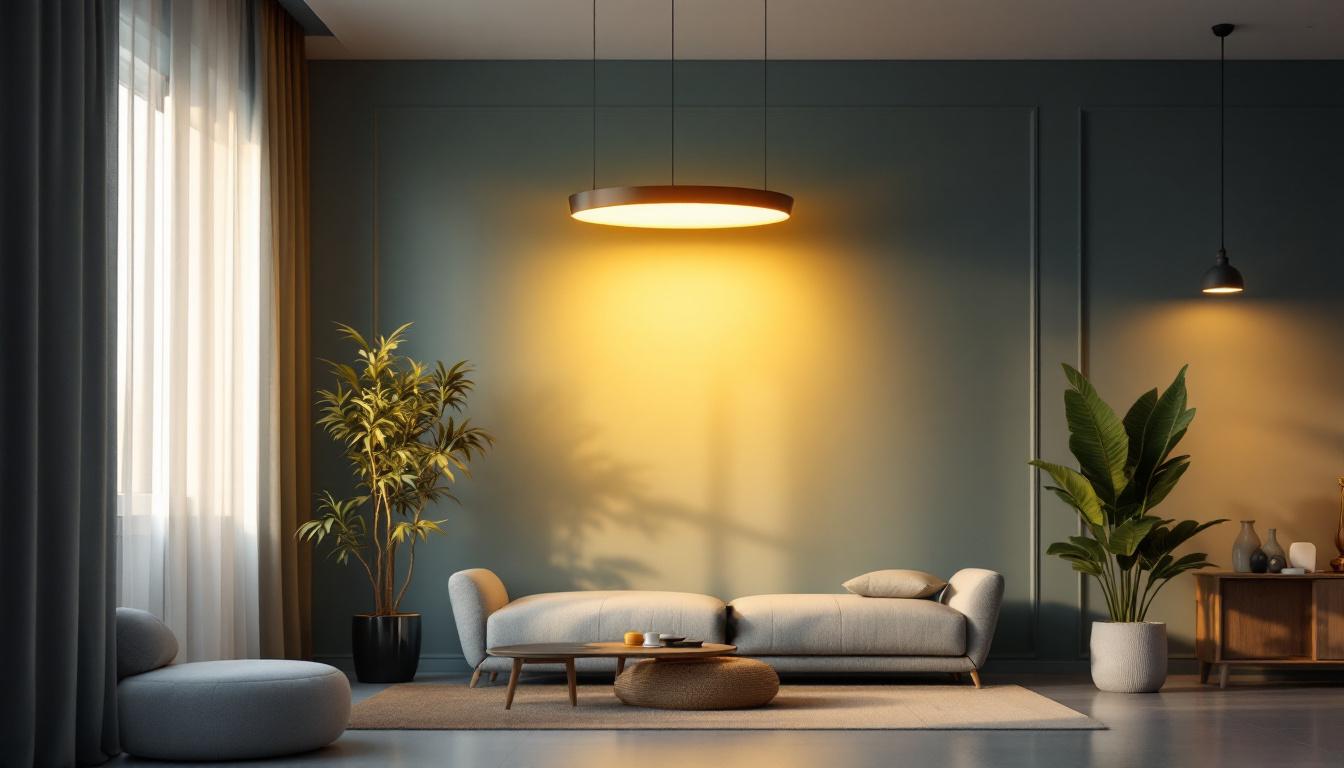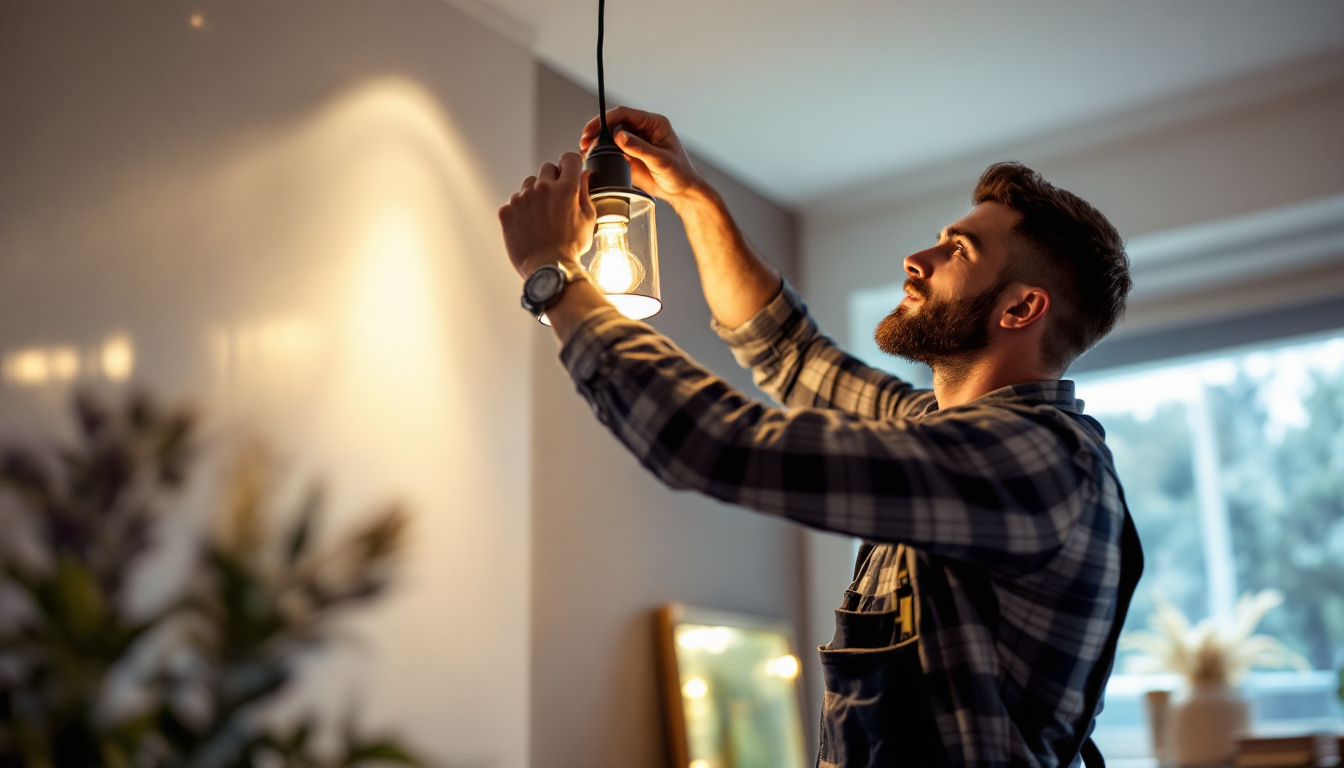
Lighting plays a crucial role in enhancing the aesthetics and functionality of outdoor spaces. For lighting contractors, selecting the best outdoor lights for residential projects can be a daunting task. This article aims to simplify the process by exploring various types of outdoor lighting, their applications, and key considerations to keep in mind when making selections.
Outdoor lighting can be categorized into several types, each serving distinct purposes. Understanding these categories will help contractors make informed decisions tailored to their clients’ needs.
Pathway and walkway lights are essential for ensuring safety and accessibility around residential properties. These lights illuminate pathways, guiding residents and guests safely to their destinations. They are typically low to the ground and can be solar-powered or hardwired.
When selecting pathway lights, consider the brightness and beam angle. A wider beam angle can cover more area, while adjustable brightness settings can enhance energy efficiency. Additionally, choosing durable materials that withstand weather conditions is crucial for longevity. For instance, stainless steel or weather-resistant plastic can provide durability against rust and corrosion, ensuring the lights remain functional and aesthetically pleasing for years to come.
Furthermore, integrating smart technology into pathway lighting can elevate the user experience. Smart pathway lights can be controlled via mobile apps, allowing homeowners to adjust settings remotely or set schedules for when the lights should turn on or off. This not only adds convenience but also enhances security by ensuring the pathways are illuminated when needed.
Deck and patio lighting transforms outdoor living spaces into inviting areas for relaxation and entertainment. Options include recessed lights, string lights, and wall-mounted fixtures. Each option offers a unique ambiance, allowing contractors to customize the lighting based on the homeowner’s preferences.
For deck lighting, recessed fixtures can be installed into the steps or the deck itself, providing a seamless look. String lights, on the other hand, create a cozy atmosphere and can be draped across railings or overhead structures. Consideration should be given to the color temperature of the lights, as warmer tones often create a more welcoming environment. Additionally, dimmable options can enhance the versatility of the space, allowing homeowners to adjust the mood from bright and lively to soft and intimate, depending on the occasion.
Incorporating accent lighting can further enhance the aesthetic appeal of decks and patios. Highlighting architectural features, plants, or outdoor artwork with spotlights or uplights can create a visually stunning effect that draws attention to the beauty of the outdoor space. This not only adds to the overall ambiance but also makes the area more enjoyable for gatherings and social events.
Security lighting is an essential aspect of outdoor illumination, providing safety and peace of mind for homeowners. Flood lights and motion sensor lights are popular choices in this category. Flood lights offer broad illumination, making them ideal for large areas, while motion sensor lights activate when movement is detected, conserving energy when not in use.
When recommending security lighting, it’s important to assess the specific needs of the property. Factors such as the layout of the home, landscaping, and potential blind spots should be considered to ensure optimal coverage and effectiveness. For instance, placing flood lights at strategic points around the perimeter can deter intruders while ensuring that all entry points are well-lit.
Additionally, integrating smart security lighting systems can enhance safety features. These systems can be programmed to simulate occupancy by turning lights on and off at random intervals, making it appear as though someone is home, even when the house is empty. Some advanced systems can even send alerts to homeowners’ smartphones when motion is detected, allowing for real-time monitoring of their property from anywhere in the world. This combination of technology and strategic placement can significantly bolster a homeowner’s sense of security and protection.
When selecting outdoor lights, several key features should be evaluated to ensure the best choices are made. These features not only affect functionality but also contribute to the overall aesthetic of the property.
Energy efficiency is a significant consideration for modern outdoor lighting. LED lights are often the preferred choice due to their low energy consumption and long lifespan. They provide bright illumination while using a fraction of the energy compared to traditional incandescent bulbs.
Contractors should also consider solar-powered options, which harness sunlight during the day to power the lights at night. This not only reduces energy costs but also minimizes the need for extensive wiring, making installation easier and more cost-effective. Furthermore, solar lights have become increasingly sophisticated, with features like motion sensors and adjustable brightness levels, allowing homeowners to customize their lighting according to their needs and preferences.
Outdoor lights must withstand various weather conditions, from heavy rain to extreme heat. Selecting fixtures made from durable materials, such as stainless steel or weather-resistant plastics, is essential for ensuring longevity.
Additionally, look for lights with an appropriate IP (Ingress Protection) rating. A higher IP rating indicates better resistance to dust and moisture, which is crucial for outdoor applications. This consideration helps avoid frequent replacements and maintenance, ultimately saving time and costs. It’s also worth noting that some manufacturers offer warranties on their outdoor lighting products, providing further assurance of durability and performance over time.
The design of outdoor lighting fixtures should complement the architecture and landscaping of the home. A well-chosen light fixture can enhance the overall curb appeal and create a cohesive look.
Contractors should present clients with a variety of styles, from modern and sleek to traditional and ornate. Color finishes, such as black, bronze, or white, can also impact the visual appeal. It’s essential to align the lighting design with the homeowner’s taste and the overall theme of the property. Additionally, incorporating features like dimmable lights or smart technology can elevate the aesthetic experience, allowing homeowners to adjust the ambiance for different occasions, whether it’s a cozy family gathering or an elegant outdoor dinner party. This versatility not only enhances the beauty of the space but also increases its functionality, making outdoor areas more inviting and usable at all times of the day and night.
With a variety of outdoor lighting solutions available, contractors can offer clients tailored options that meet their specific needs. Here are some popular choices that have gained traction in residential projects.
Smart outdoor lighting systems have become increasingly popular due to their convenience and advanced features. These systems can be controlled remotely via smartphones or smart home devices, allowing homeowners to adjust lighting settings from anywhere.
Features such as scheduling, dimming, and color changing add versatility to outdoor spaces. Contractors should consider recommending smart lighting solutions for tech-savvy clients looking to enhance their outdoor experience.
Solar-powered outdoor lights are an eco-friendly option that appeals to environmentally conscious homeowners. These lights are easy to install, as they do not require wiring, and they harness sunlight to operate.
While solar lights may not provide the same brightness as wired options, advancements in technology have improved their performance. Contractors should highlight the benefits of solar lighting, including reduced energy costs and minimal maintenance requirements.
Wall-mounted outdoor lights are versatile and can serve various purposes, from accent lighting to security. They can be installed near entryways, garages, or patios, providing both functionality and style.
When recommending wall-mounted fixtures, consider the height and placement to ensure optimal illumination. Additionally, selecting fixtures that match the architectural style of the home can enhance the overall aesthetic appeal.
Proper installation is critical to the performance and longevity of outdoor lighting. Contractors should be well-versed in best practices to ensure that the lights function effectively and safely.
For hardwired outdoor lights, understanding the electrical requirements is essential. This includes assessing the power supply, circuit capacity, and compliance with local electrical codes. Ensuring that the wiring is properly installed and protected from the elements is crucial for safety.
Contractors should also consider the use of low-voltage systems, which can simplify installation and reduce energy consumption. Low-voltage lights require a transformer to convert standard voltage, making them safer and easier to work with.
The placement and spacing of outdoor lights significantly impact their effectiveness. Properly spaced lights can create a balanced and inviting atmosphere, while poorly placed lights can lead to dark spots or excessive brightness.
Contractors should take into account the specific areas that need illumination, such as pathways, entryways, and landscaping features. A well-planned lighting layout will enhance safety and aesthetics, providing a seamless outdoor experience.
Regular maintenance is essential for ensuring that outdoor lights continue to function optimally. Contractors should advise homeowners on the importance of cleaning fixtures, checking for burnt-out bulbs, and inspecting wiring for any signs of damage.
Additionally, seasonal maintenance can prevent issues related to weather exposure. For example, ensuring that solar panels are clean and free from debris will maximize their efficiency. Providing clients with a maintenance schedule can help prolong the life of their outdoor lighting systems.
Choosing the best outdoor lights for residential projects requires careful consideration of various factors, from types of lighting to installation practices. By understanding the different categories of outdoor lighting and the key features to look for, lighting contractors can simplify the selection process for their clients.
Whether opting for energy-efficient LED fixtures, stylish wall-mounted options, or innovative smart lighting systems, the right choices can enhance the safety and beauty of outdoor spaces. By staying informed about the latest trends and technologies in outdoor lighting, contractors can provide exceptional service and meet the evolving needs of homeowners.
Ultimately, the goal is to create outdoor environments that are not only functional but also inviting and aesthetically pleasing. With the right approach, lighting contractors can transform residential properties through the power of effective outdoor lighting.
Ready to elevate your outdoor lighting projects with unmatched quality and value? Look no further than LumenWholesale, where we specialize in providing lighting contractors with spec-grade lighting solutions at wholesale prices. Our commitment to quality and affordability means you can access a wide range of outdoor lighting options that meet the highest industry standards. Say goodbye to inflated markups and hello to hassle-free bulk buying with free shipping. Don’t compromise on quality or cost—choose LumenWholesale for Wholesale Lighting at the Best Value and light up your projects with confidence.

Explore the transformative journey of 8 ft light fixtures in the lighting industry, from their historical roots to modern innovations, and discover how they illuminate spaces with efficiency and style..

Discover the crucial role of canister lights in modern lighting design.

Discover how lighting contractors can boost their business by mastering the use of LED light strips.

Discover the essential insights on LED trim lights tailored for lighting contractors.